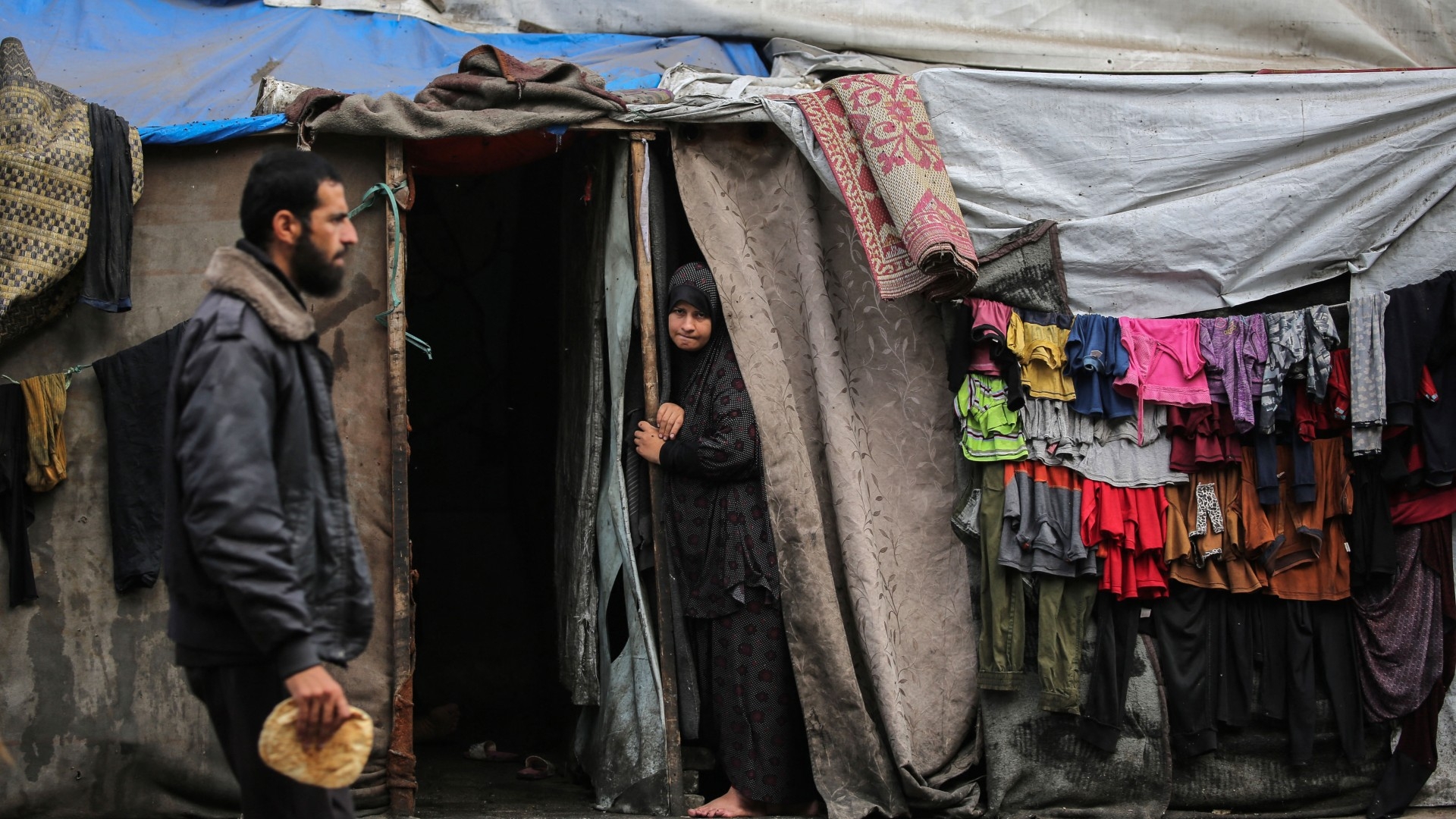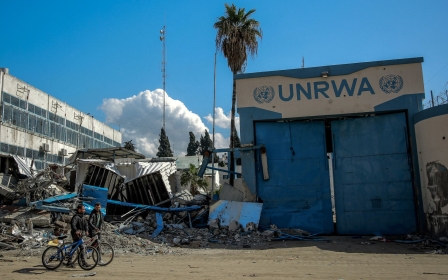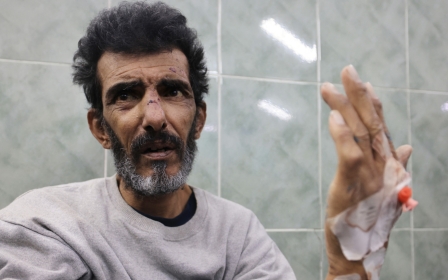UK's deputy foreign secretary queries legality of Israel's Rafah offensive

An Israeli military offensive on Rafah "in the current circumstances" would be a violation of international humanitarian law, the UK's deputy foreign secretary suggested on Tuesday.
"Given the number of civilians sheltering in Rafah, it's not easy to see how such an offensive could be compliant with international humanitarian law," Andrew Mitchell said in parliament.
Over one million displaced Palestinians - more than half of Gaza's population - are currently sheltering in tents and makeshift camps in the now overcrowded city in southern Gaza, which Israel has vowed to attack.
On Monday, Palestinian President Mahmoud Abbas pleaded with US President Joe Biden to intervene, saying even a small strike on Rafah could push Palestinians to flee Gaza and cause "the biggest catastrophe" in Palestinian history.
Mitchell said the British government was "doing everything [it] can" to prevent an offensive on the city and was "working in lock step" with the US government.
New MEE newsletter: Jerusalem Dispatch
Sign up to get the latest insights and analysis on Israel-Palestine, alongside Turkey Unpacked and other MEE newsletters
Later on Tuesday, Israeli Prime Minister Benjamin Netanyahu said that Israel would invade Rafah even if Hamas agrees to the latest truce talks for a ceasefire.
"We will enter Rafah and we will eliminate the Hamas battalions there with or without a deal, in order to achieve the total victory," according to a statement released by his office.
Unrwa funding pressure
Several MPs on Tuesday also demanded to know when the UK government would decide whether to resume funding to the UN agency for Palestinian refugees, Unrwa, after pausing funds in late January over Israeli allegations that staffers participated in the Hamas-led 7 October attack.
It has remained unclear on what basis the UK took its decision to halt its funding for Unrwa, which it maintains is vital to humanitarian operations in Gaza. No evidence to support the Israeli allegations has been made public.
'The UK is one of the few major donors not to have resumed Unrwa funding'
- Lisa Nandy, MP
Mitchell told parliament last month that the government was awaiting interim reports of two investigations into Unrwa, by former French foreign minister Catherine Colonna and the UN Office of Internal Oversight Services (OIOS), before making its decision.
"We are asking that we have an interim report on both the key reports as soon as possible, and we will look at those reports as soon as they arrive and make our decisions accordingly," he said on 12 March.
Since then, interim reports of both investigations have been released and the final Colonna report was published last week. Many of the donor countries that halted funding, including Canada, Australia and Germany, have resumed support with the reports' publication.
'Not good enough'
Mitchell said on Tuesday that the government would not make a decision on Unrwa funding until it receives the final OIOS findings and also sees the UN agency's response to the report.
Scottish National Party foreign affairs spokesman Brendan O'Hara questioned why Mitchell had assured MPs that a decision would come after receiving Colonna's interim report and now seemed to be "setting us up for even further delay".
"It's simply not good enough, minister," O'Hara said.
"We’ve been very clear that we are waiting for not one but two reports," Mitchell responded. "We will consider carefully both those two reports in full and we will make a decision and I will come back to the house when that decision is reached."
Lisa Nandy, Labour’s shadow cabinet minister for international development, said it was "beyond disappointing that ministers are delaying a decision on funding for Unrwa".
"The UK is one of the few major donors not to have resumed funding. Unrwa is critical for the aid operation in dire conditions. The UK should show leadership on this. We need a decision now," Nandy tweeted on Tuesday.
Gary Spedding, an independent cross-party consultant on Israel-Palestine, said waiting for the OIOS report "essentially has given Israel a veto over the UK decision".
"This is an incredibly dangerous situation now with immense reputational damage already done to the vital UN agency," he tweeted.
"The UK risks being complicit in efforts to collapse Unrwa as an organisation, thus causing further damage to the ability of organisations that use the Unrwa network and infrastructure in Gaza to delivery humanitarian aid at scale needed in Gaza."
Chris Doyle, director of the Council for Arab-British Understanding (Caabu), told Middle East Eye the decision showed a government "still unwilling to reverse what was a disastrous and dangerous decision".
"There was no evidence to back this in January and there remains no evidence to back this now," Doyle said.
"Instead what there is evidence of is a famine in Gaza, where Palestinians are dying of starvation, and Unrwa, the largest humanitarian agency in Gaza, is not getting the backing to carrying out its life-saving work."
Middle East Eye delivers independent and unrivalled coverage and analysis of the Middle East, North Africa and beyond. To learn more about republishing this content and the associated fees, please fill out this form. More about MEE can be found here.




